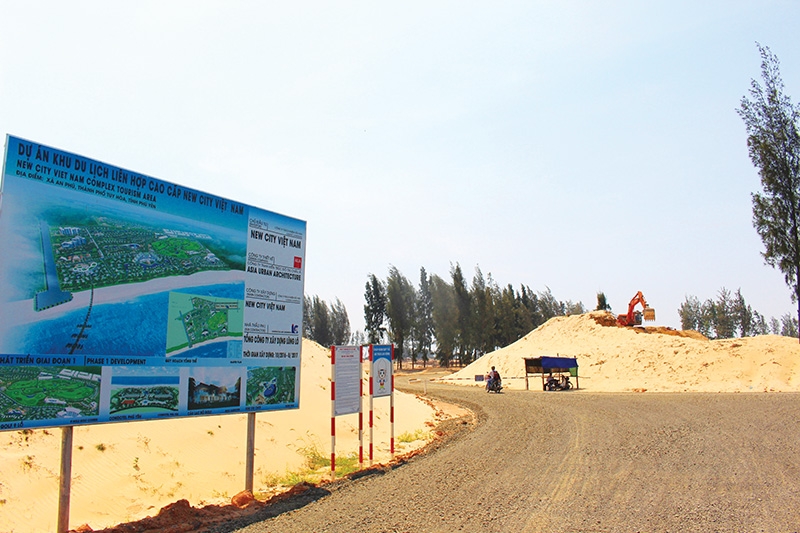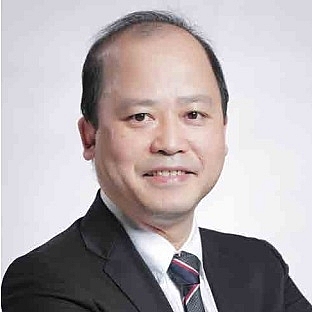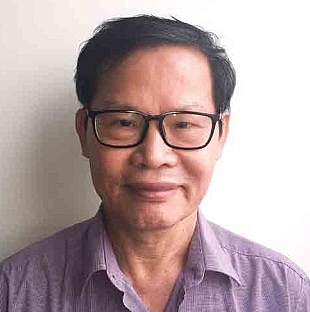Mega-projects in need of getting a grip
 |
| Several billion-dollar foreign projects have been mired down for years |
According to the Economic Zones Management Authority of the southern province of Kien Giang where the $1.27 billion Block B-O Mon pipeline project is located, it was licensed in 2017 but has yet to even kick off construction, despite the initial plan calling for a five-phase development which would have been completed next year.
Le Minh Trung, deputy director of the authority told VIR, “No phase of the project has begun work so far as the investor – PetroVietnam – said that Block B has insufficient gas for project development.”
With the involvement of investor PTTEP Southwest Vietnam Pipeline Co., Ltd., and Mitsui Oil Exploration Co., Ltd., the project aimed to supply gas for power plants in the O Mon Power Centre, and supplement for the Ca Mau Gas-Power-Fertiliser complex and other power plants in Kien Giang Power Centre.
A similar situation has befallen other mammoth power projects, including the Nam Dinh 1 build-operate-transfer (BOT) thermal power plant in the northern province of Nam Dinh, and the Nghi Son 2 BOT thermal power facility in the north-central province of Thanh Hoa. They were also licensed in 2017 but remain well behind schedule.
Tran Minh Hoan, director of Nam Dinh Industrial Zones Management Authority said, “The $2.07 billion Nam Dinh 1 project is still in slow progress due to problems related to coal supply.”
State-run Vinacomin has yet to ensure sufficient coal supply, but the investor said that the supply is the decisive condition required to continue the development. Limited coal supply in the country as a whole is the major factor for the delays.
In another case, the $2.79 billion Nghi Son 2 plant – funded by Japanese and South Korean investors Marubeni Corporation and Korea Electric Power Corporation – is stagnant in part because of knock-on COVID-19 effects. The Nghi Son Economic Zones Management Authority disclosed that experts cannot yet return to Vietnam due to the global health crisis.
The three are among dozens of major foreign-invested projects showing sluggishness across the country. However, whether or not they are in risk of licence revocation altogether remains unknown for now.
At a recent online meeting of planning and investment agencies, Minister of Planning and Investment Nguyen Chi Dung noted that long-stagnant projects should have their licences revoked and hand over the opportunities for other capable investors to increase quality of both foreign investment and disbursement.
In fact, Vietnam has so far taken strong action in this regard in other areas, in which many schemes in manufacturing and real estate had their licences revoked (see box).
While many stagnant projects have caused negative social and economic impacts, local authorities have taken measures to fast-track projects. However, not much progress has been seen so far.
For instance, Kien Giang, Nam Dinh, and Thanh Hoa have made efforts to speed up the projects. However, the issues surrounding PetroVietnam, coal supply, and the pandemic mean any efforts made to speed up the ventures require more developments to weigh in their favour in order to succeed.
In Ho Chi Minh City, where a handful of huge projects at a standstill, leaders of the municipal People’s Committee have many times expressed dissatisfaction with the slow progress and asked departments and agencies to take measures to accelerate them.
They include Thu Thiem Eco Smart City, worth nearly $1 billion from Lotte Properties, which cannot make the next steps due to various procedural problems. The South Korean group seeking for government thumbs-up for further advancement.
In Hanoi, the future operation prospects of the controversial Cat Linh-Ha Dong urban railway project – the first venture of its kind in Vietnam – remains dim despite over a decade of construction. The project has caused high indignation among local people because of traffic problems, although Hanoian authorities and the Ministry of Transport have many times asked Chinese contractors and other relevant agencies to accelerate it.
| The list of some billion-US-dollar foreign invested projects got licence revocation - The $1-billion foreign-invested New City Vietnam project from New City Properties Development and Sunrise Vietnam located in the central province of Phu Yen; - The $1.6-billion Bai Dai Resort venture from Starbay Holdings Ltd., and the British Virgin Islands located on Phu Quoc Island; - The $1-billion sponge iron plant invested in by Japan’s Kobe located in the central province of Nghe An; - The $1 billion auto manufacturing plant from Russia’s Buscenter Met in the south-central province of Binh Dinh; and - The $4.1 billion Saigon Atlantis project of Winvest Investment located in the southern province of Ba Ria-Vung Tau. |
Investment disbursement has been a concern for years, despite some improvements in recent years. As shown in statistics from the Ministry of Planning and Investment, in 2018, Vietnam’s foreign investment disbursement hit $19.1 billion, accounting for about 50 per cent of the total registered capital. The disbursed figure in 2019 was $20.23 billion, or 53.6 per cent, marking an all-time high.
Economists and lawyers said that the government needs to take bolder action than previously in order to deter future sluggish ventures – otherwise, the list of major stagnant projects will keep rising.
| Vaibhav Saxena - Lawyer, Vietnam International Law Firm
Foreign direct investment (FDI) has been a major part of Vietnam’s economy since its renovation process started in 1986. Since then, the country has carried out various measures to attract FDI. However, there are pressing concerns about a number of foreign-invested projects with the value of billions of US dollars, currently far behind their schedule despite gaining licences years ago. Local authorities are usually reluctant to take drastic measures to either hold the foreign investors accountable to the projects or revoke their licences when these are far behind schedule. The government should take a tougher approach to hold foreign investors to their commitments while sustaining a smooth FDI environment in the country. Local authorities need to be more actively monitoring the implementation of foreign-invested projects. Stringent measures are also required to introduce digitalisation in state affairs related to FDI, especially to ensure transparency for administrative processes. The past few months have witnessed a change in how officials deal with these sluggish projects. A close regulatory check on foreign-invested projects is a must to ensure timely implementation and limit the scope of any delay from the government side or from the investor. Nguyen Hung Quang - Managing partner, NHQuang & Associates
State agencies need to analyse the reasons for the delayed progress of foreign-invested projects. There are several possible reasons associated with projects being behind schedule. Firstly, there may be delays in the processing of approvals by state agencies after the projects have been licensed. Secondly, infrastructure around the projects may not be satisfying. Thirdly, state agencies could be slow in settling investors’ grievances due to problems, like unclear regulations, accessing land, land clearance, and others. Fourthly, changing policies and laws on investment and business may cause investors to change their objectives and project scale. Fifthly, some foreign investors could intentionally apply to get projects due to the legal advantages from the licences without any real intention to invest. And lastly, force majeure events or other risks leading to foreign investors’decisions to discontinue their projects in Vietnam. I think state agencies should have proactive solutions, such as improving the efficiency of administrative reforms and the quality of planning; building a systematic and effective response mechanism to investors’ grievances; ensuring the stability of policies and laws for business and investment activities; as well as making the investment screening mechanism more efficient. Nguyen Thanh Ha - Lawyer, Vietbid Consulting Co., Ltd.
A number of powerful investors like Samsung, Intel, Ericsson, Qualcomm, and others have invested in Vietnam. High investment disbursement proves strong commitments of financiers to the local market. In the meantime, there are also many foreign investors failing to develop their projects in time. This is particularly true with large, billion-dollar projects, especially in infrastructure areas. One reason for these delays is that such projects often require acceptance from government agencies, which often prolong the process. Another reason is the long time for land clearance and compensation. In addition, investors may have fully prepared for such complex projects, and have not fully understood what is possible to procure locally in Vietnam, and what not. To increase the quality of FDI and implement large projects in time, the country should further tighten control over development of existing projects, helping them solve the difficulties. From the beginning, investors should be assisted to make a realistic schedule, with clear issues to be addressed, and a concrete action plan for implementation. For large projects of significance, the government may need to establish a task force to solve problems with the investors. |
What the stars mean:
★ Poor ★ ★ Promising ★★★ Good ★★★★ Very good ★★★★★ Exceptional
Related Contents
Latest News
More News
- Kurz Vietnam expands Gia Lai factory (February 27, 2026 | 16:37)
- SK Innovation-led consortium wins $2.3 billion LNG project in Nghe An (February 25, 2026 | 07:56)
- THACO opens $70 million manufacturing complex in Danang (February 25, 2026 | 07:54)
- Phu Quoc International Airport expansion approved to meet rising demand (February 24, 2026 | 10:00)
- Bac Giang International Logistics Centre faces land clearance barrier (February 24, 2026 | 08:00)
- Bright prospects abound in European investment (February 19, 2026 | 20:27)
- Internal strengths attest to commitment to progress (February 19, 2026 | 20:13)
- Vietnam, New Zealand seek level-up in ties (February 19, 2026 | 18:06)
- Untapped potential in relations with Indonesia (February 19, 2026 | 17:56)
- German strengths match Vietnamese aspirations (February 19, 2026 | 17:40)




 Tag:
Tag:




















 Mobile Version
Mobile Version